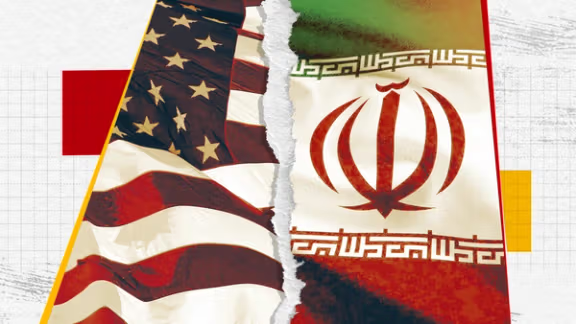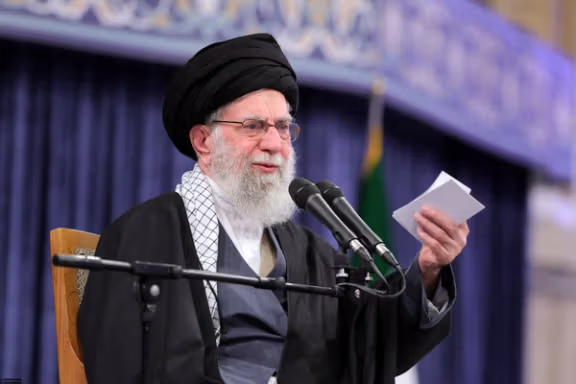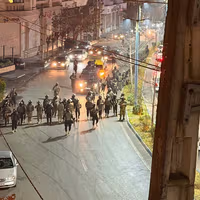Citing two senior Iranian officials involved in the negotiations and a US official with knowledge of the plans, the report said a US-chartered flight took off from Louisiana on Monday night and was scheduled to arrive in Iran via Qatar on Tuesday.
The deportees, including men and women -- some couples -- were either long in detention or had asylum requests denied, Iranian officials told the Times. Some had volunteered to leave after months in US custody, while others had not yet appeared before a judge.
The deportation marked one of the most direct efforts yet by the Trump administration to remove migrants even to countries with severe human rights conditions, the Times said.
The Times described the deportation as a rare moment of cooperation between Washington and Tehran, after months of negotiations.
Iranian officials said the country’s foreign ministry was coordinating the deportees’ return and that they had been assured of their safety. Still, they said, many were disappointed and some frightened.
Iran confirms 120 nationals deported
Later on Tuesday, Iran’s Foreign Ministry confirmed that 120 Iranian migrants are being deported from the United States and will return home in the coming days, saying they will receive full consular support.
Hossein Noushabadi, the ministry’s parliamentary director, told Tasnim news agency that US immigration authorities had decided to expel about 400 Iranians, mostly those who entered the country illegally, “with the first 120 to be deported soon, most of them having crossed through Mexico.”
“Some of those now returning even had residency permits, but the US authorities decided to include them in the list,” he said. “Their consent for repatriation has been obtained.”
Noushabadi said Iran had lodged diplomatic notes via the US Interests Sections in Tehran and Washington, urging Washington to respect the rights of Iranian migrants.
“We asked the US government to ensure Iranian migrants are not deprived of consular services, fair trial rights, and protections under international law,” he said.
He stressed that Tehran would support returnees. “Iran will definitely host its nationals who migrated for any reason,” Noushabadi said. “These people are Iranians, they left Iran legally, and there is no obstacle to their return.”
He added that if other Iranians on the US list are deported, they will also be accepted, and that the first group will arrive via Qatar within one to two days.
Earlier this year, groups of Iranians, including converts to Christianity who face possible persecution at home, were flown to Costa Rica and Panama. Advocates have challenged the flights in court.
For decades, the United States has provided refuge to Iranians fleeing persecution, including women’s rights activists, dissidents, journalists, lawyers, religious minorities and members of the LGBTQ community.
The Times added that the US has historically struggled to carry out deportations to Iran due to a lack of diplomatic ties and travel documents, deporting only about two dozen Iranians in 2024.
“Iran is the homeland of all Iranians, and our compatriots can freely return to their homeland and travel,” Iran’s Foreign Ministry spokesperson Esmail Baghaei said in February in response to earlier deportations, calling US treatment of migrants “harsh and inhumane.”
The deportations follow a broader crackdown. In June, Fox News reported that more than 130 Iranian nationals were arrested across the United States in a nationwide enforcement operation, citing federal sources.
Officials said those detained included individuals with suspected ties to the Islamic Revolutionary Guard Corps (IRGC) and Hezbollah, as well as people with criminal records for drugs, weapons, and domestic violence.
One former Iranian army sniper was arrested in Alabama, while another man in Minnesota admitted past ties to Hezbollah, Fox News said.
The deportation also comes amid Iran’s worsening domestic crisis, with the economy battered by inflation, currency depreciation, and power and water shortages. The reimposition of United Nations Security Council sanctions on Saturday is expected to intensify pressure.

















